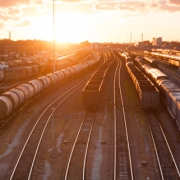LNG from Africa
The combination of LNG and Africa has always been regarded with awe. The continent certainly is challenging in many respects. But it’s also incredibly rewarding.
LNG is a topic that gives most energy professionals cold shivers. I cover the reasons for that in other articles.
It gets really crazy when LNG is combined with the word Africa and when I say Africa, I largely mean the Sub Saharan part. This is supposed to be the rough neck corner of the world. Sometimes this distinction is deserved. But most of the fears about this continent are more superstition than fact.
I remember my first trip to Teheran. I worked at EconGas at this time and I was advised to stay in my hotel and lock the door. Contrary to most of my colleagues of that time I was well-traveled (see the other things I do for more) so I did not listen. I walked the streets for two days in order to get a feel for the city and what I found was a bustling, thriving and fun to be in a Middle Eastern metropolis. There are certainly quarters you don’t want to get stuck at night but I find those places in my hometown Vienna as well. That’s the same for most other places on earth.
But let’s come back to LNG. There is a short list of preconditions that need satisfaction before someone can consider an LNG project.
- You need a feed-gas source with a sufficiently stable flow (or economically stabilizable flow) of natural gas to feed the plant
- You need a reserve that is capable to provide the necessary feed-gas volumes reliably for 20 years at least
- You need feed-gas that is not too dirty (Sulfur, CO2) in order to keep purification costs in check
- You better have very wet gas as the economics from liquids will spruce up your economics
- You need to comply with a whole lot of local content policies and local politicians and officials
- And very important – you need a reserve that cannot economically be used on something else (pipeline export, gas-hungry industries, domestic gas use)
That’s a big list but few areas in the world fit the bill better than Sub-Saharan Africa. Now is this part of the world not really Europe which means that very often you will have to provide the most basic necessities in order to make your project fly.
For you as an LNG buyer, that means that you have to do things that you would normally not expect to do as a buyer. Upstream companies are doing this all the time. They invest money in business leads knowing fully well that just a few of them will eventually result in a deal. But one hit pays for all the duds. Likewise, as an LNG buyer, you will have to run multiple leads at the same time. That’s time-consuming and costs some money but then again, much less than the consequences of no supply.
As a buyer, you will not want to build your own project. If yes, congratulations as you are much closer to actually close a deal some time. If not, the only option left is “Give to get”. This is a policy by which you will provide pro bono first business development work in order to plant the seeds of an LNG project. Your business developer would have to search and find a gas source, deal with the owners, arrange technology, arrange the project partnership (without the buyer) and Project Finance. All this while not taking a place on shareholders list or a very small one only.
But there must be a clear understanding with the host country and the principal parties that the buyer would have privileges when it comes to market the resulting LNG.
This is a tough walk but again, if it’s your only credible option you might well consider walking it. There is no reason for a project developer who does it all himself to give you privileges. As I said many times over – this is not a market.













From Equatorial Guinea I´d like to support the idea that “most of the fears of Africa are based on superstition and not real facts”. As a matter of fact our 1rst LNG (EGLNG) train was built on budget, ahead schedule and we did deliver our 1rst cargo months before planned. Now It´s true that every continent, every country has its own particular way of doing business and it´s critical not only to understand local policies but support and be aligned with the government objectives and be active with the local content.
And the world watched with awe. Thanks for dropping in Oscar. I generally do agree with all your points although especially Local Content policy and government objectives are not always very clear cut out. Let’s take flaring policy as an example. Most oil producers have stiff anti flaring policies in place. They are rarely enforced so one cannot simply count on government assistance for laying hands on feed-gas. Another is unrealistic expectations. Not every LNG project is good for LNG supply to Japan. But those issues are not especially African. I have seen them in other parts of the world.
Hey Rudolf,
Just discovered your blog and like it very much. Just to add that the first commercial LNG plant started operation in 1964 by the name of “La Camel”. It is located in a small city by the name of Arzew, in the west of Algeria and from what they always thought me at school……….ALGERIA is in AFRICA!! Lol.
Kais, sorry for taking such along time to approve your comment. I am in the middle of a thunderstorm (in a positive sense) right now. Africa is the place – 😉
Rudolf,
No problem for the delay. Just get us those bloody LNG plants start!! lol